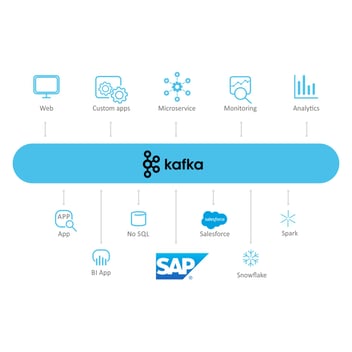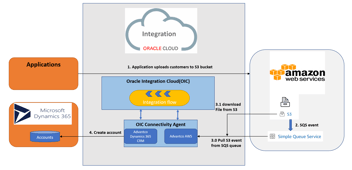Publishing Oracle E-Business Suite events to Azure Event Hubs
Introduction
A business event in Oracle E-Business Suite may trigger a business process or an action. An example of a business event can be a creation of a new employee which may trigger a notification to be sent to the applications who have subscribed to the event. Oracle E-Business Suite provides various business events for use in integrations. To use the business event and event subscription features, you can configure the Oracle E-Business Suite Adapter with business events to invoke an integration endpoint in Oracle Integration.
In this article, we provide a complete step by step guide to subscribe a new employee event and send the event to Azure Event Hubs.
Setup in Azure
Create an Event Hubs Namespace for a Resource Group. Select the Location and Price tier according to your requirements.
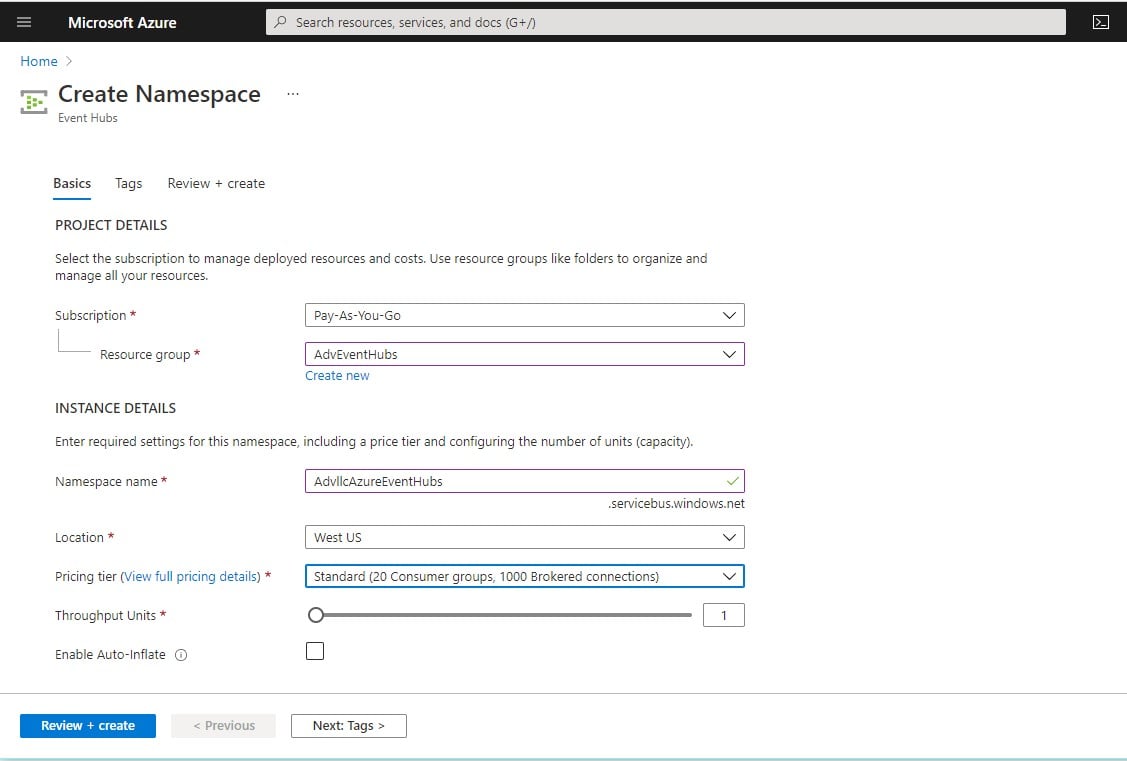
Create an Event Hubs instance with number of partitions and Retention setting.
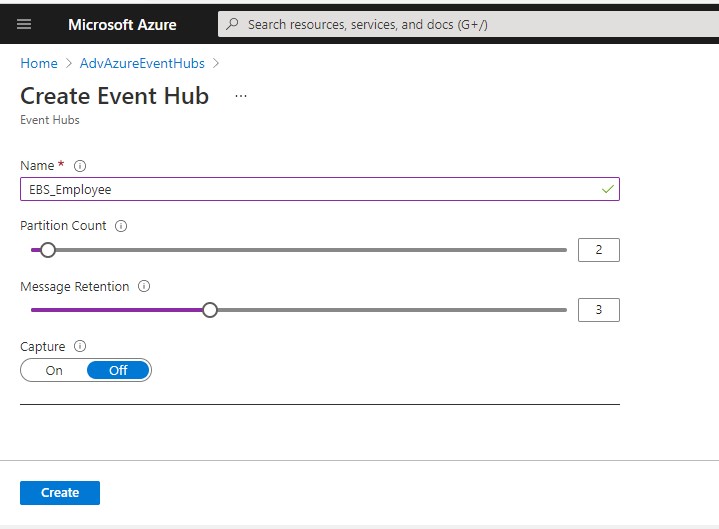
You should see something like this. We have an Events Hubs instance created.
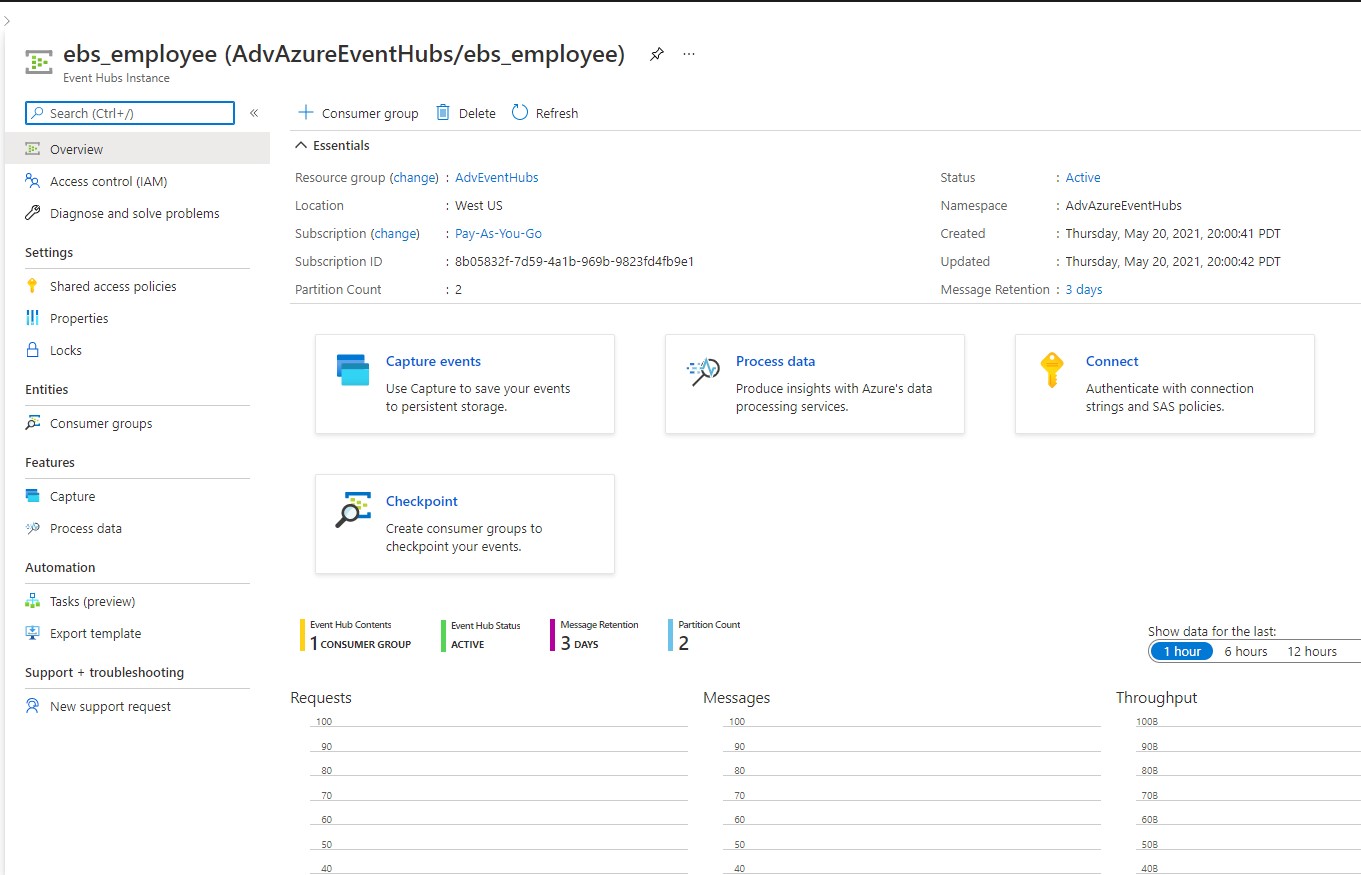
Create now the access policy. We need Send and Listen permissions.
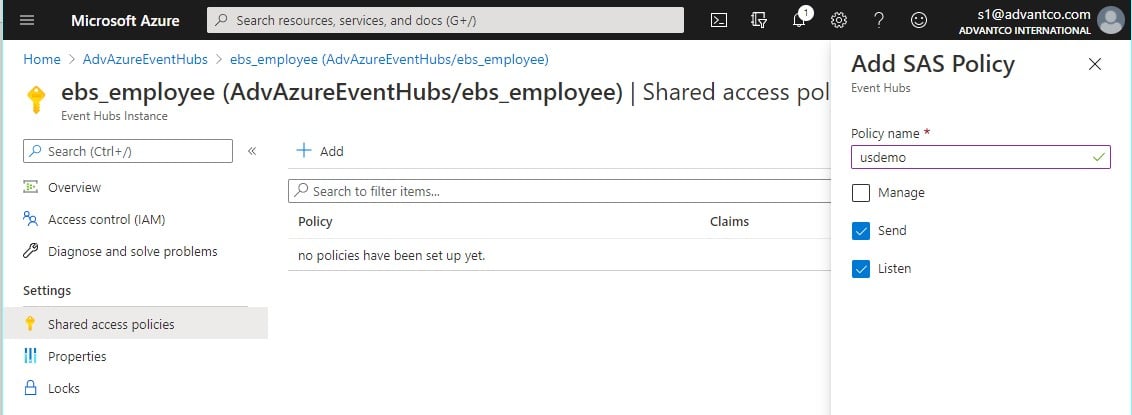
Once the access policy is created, we can copy the connection string and save it to a file. This is required to configure the connection from our OIC instance to Azure.
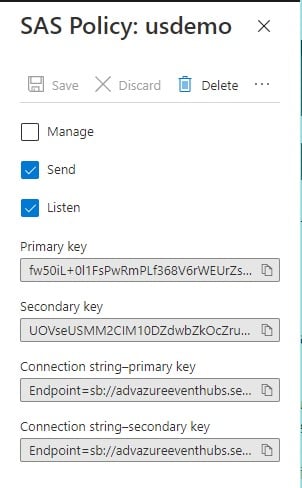
Installing the Advantco Azure adapter for OIC
Create a new Agent Group or used an existing Agent Group. Download and install the Connectivity Agent on your preferred server or VM. The Connectivity Agent can be download from your OIC instance. Follow the Oracle instructions to install the Agent and configure it to connect to the OIC instance.
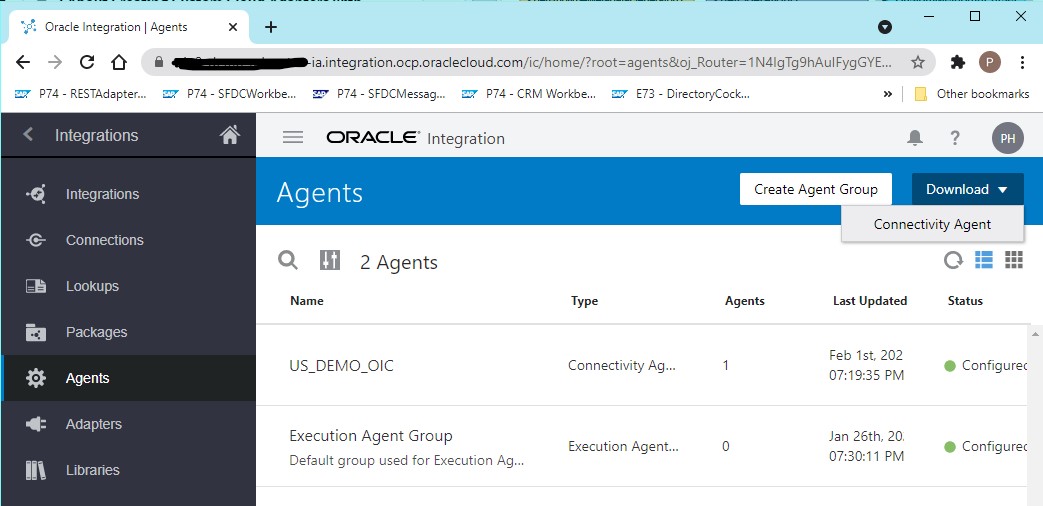
Once the Agent is installed, deploy the Azure adapter as per the Advantco installation guide. After deploying the adapter on the Connectivity Agent server, you will find the adapter listed in the OIC instance.
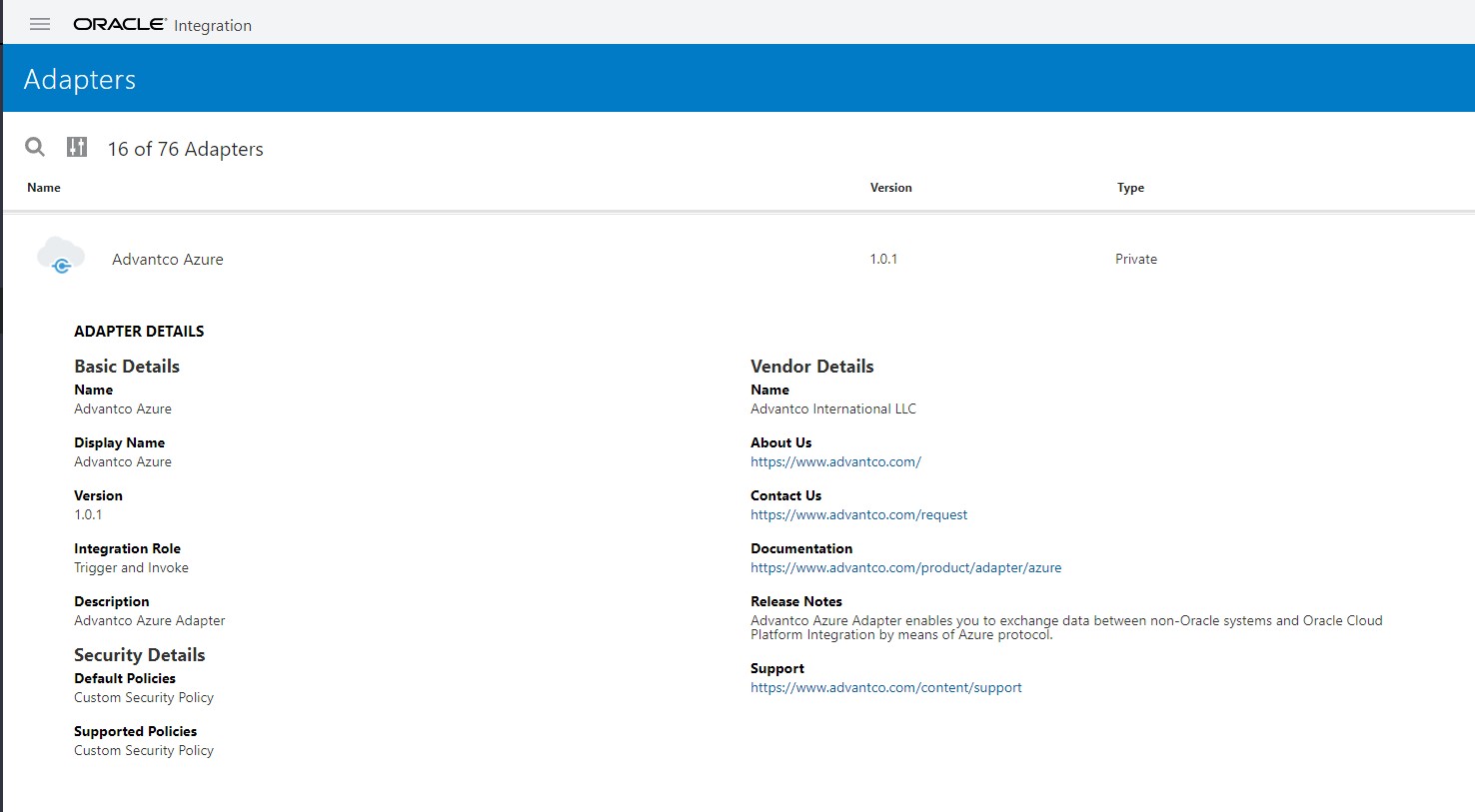
Creating a connection to Oracle E-Business Suite
We use the Oracle E-Business Suite Adapter to create a connection to our Oracle E-Business Suite instance. The setup of the Oracle E-Business Suite Adapter is outside the scope of this article, but you can find more information below in the resources section. Make sure that the user specified in the configuration has the right roles in Oracle E-Business Suite.
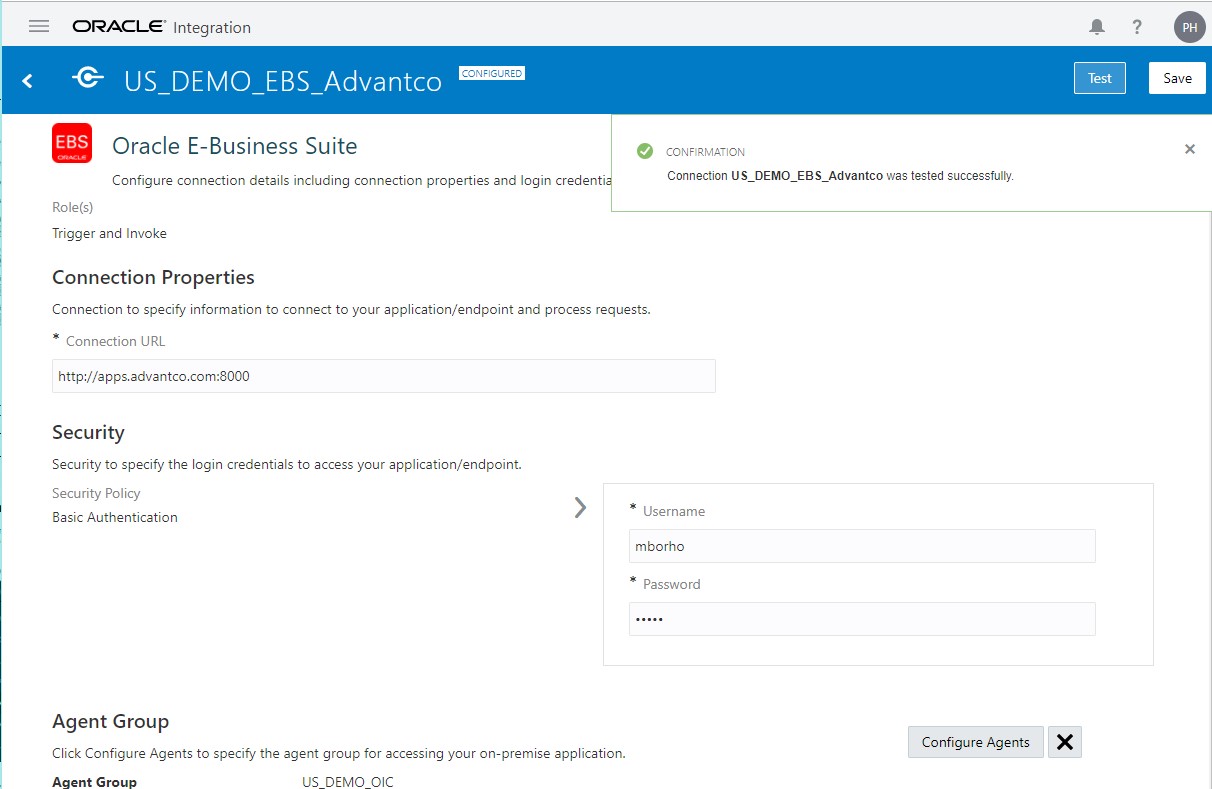
Creating a connection to Azure Event Hubs
Select the Azure adapter from the list of available adapters.
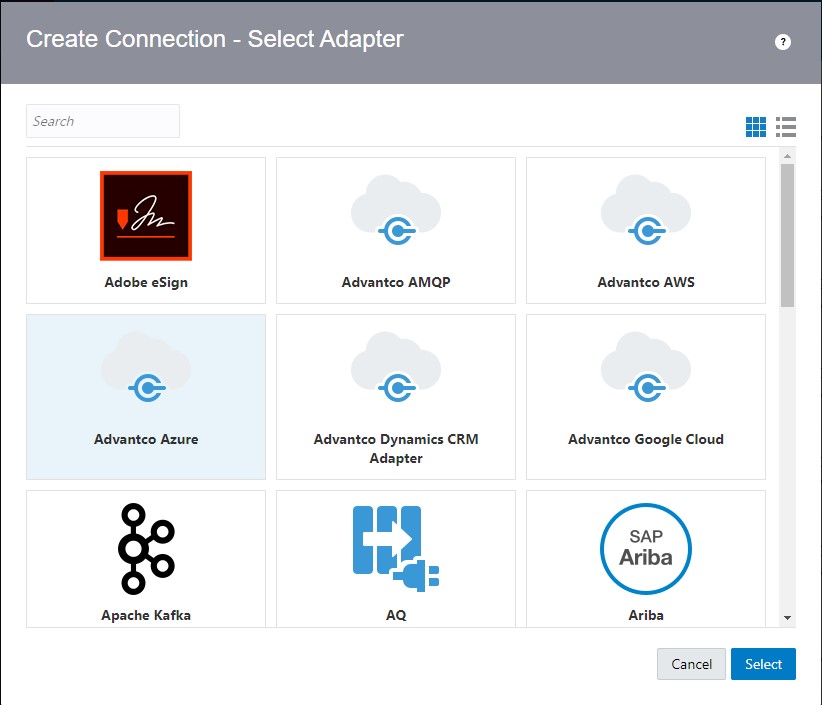
On the connection screen, select Event Hubs from the list of Service Types. You can use the Advantco Azure adapter to connect to other services like Service Bus, Azure Storage or Data Lake Gen 2.
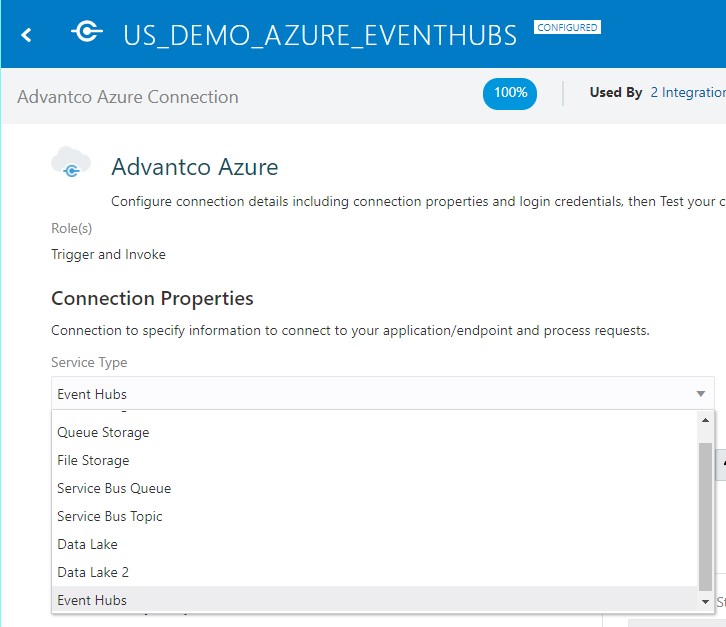
Finally, we provide the connection string that was generated in the steps above. Perform the test to confirm that everything was configured correctly. We are now ready to create the integration to send an event from Oracle E-Business Suite to Azure event Hubs.
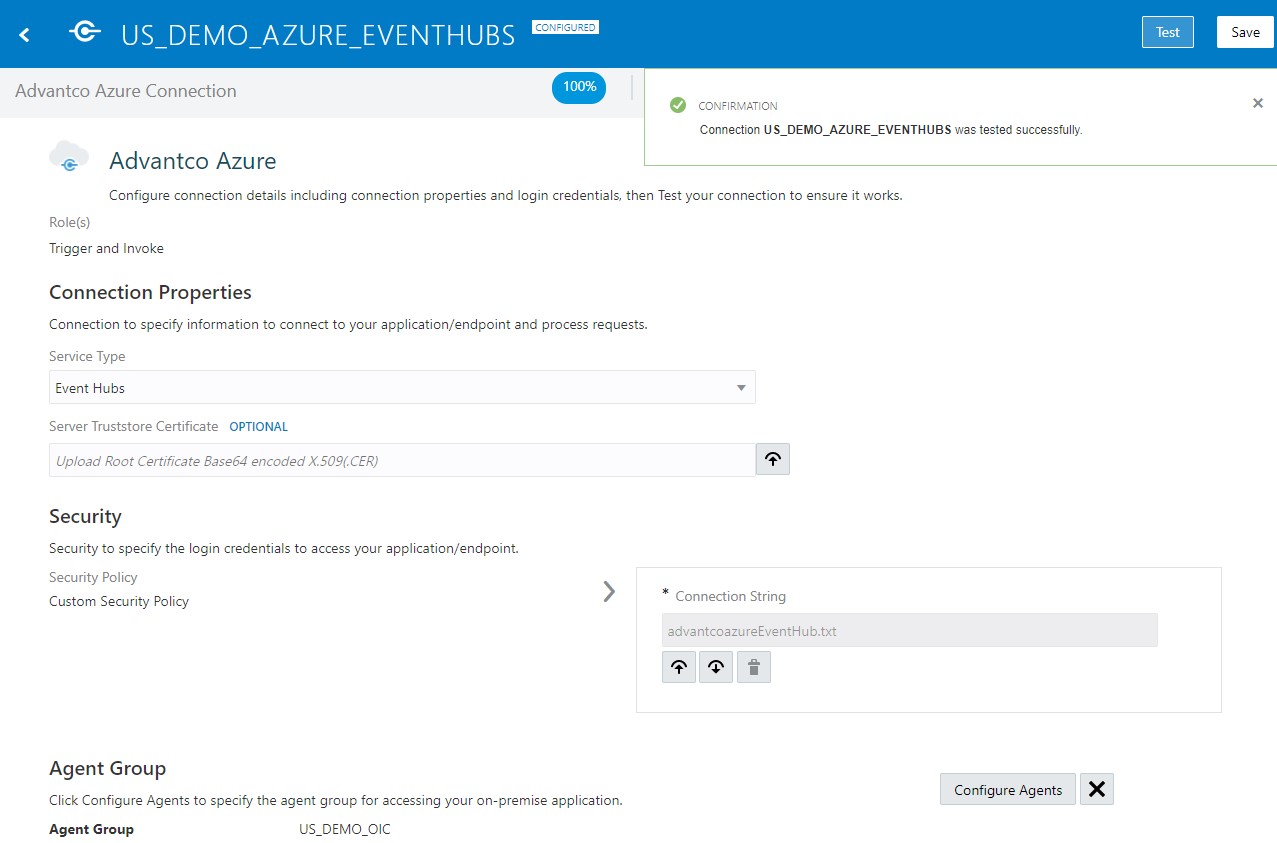
Creating the integration
We create an App Driven Orchestration integration to subscribe to an Employee Creation event from Oracle E-Business Suite and send it to Azure Event Hubs.
We use the EBS connection to configure the Create Employee event. The event is defined in the Human Resource Suite.
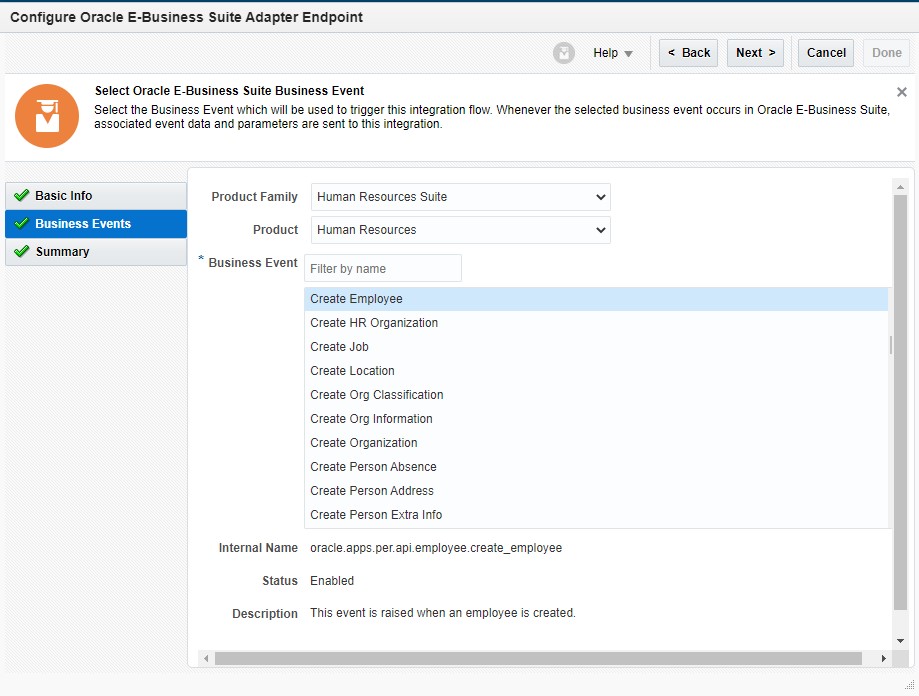
Next we configure the Azure Event Hubs endpoint. The Service Type is Event Hubs as defined in the Connection configuration. All information about the event Hubs instance was provided when we uploaded the connection string. We just have to specify custom schema here which is optional. This custom schema is the intermediate structure before we convert to the final JSON format.
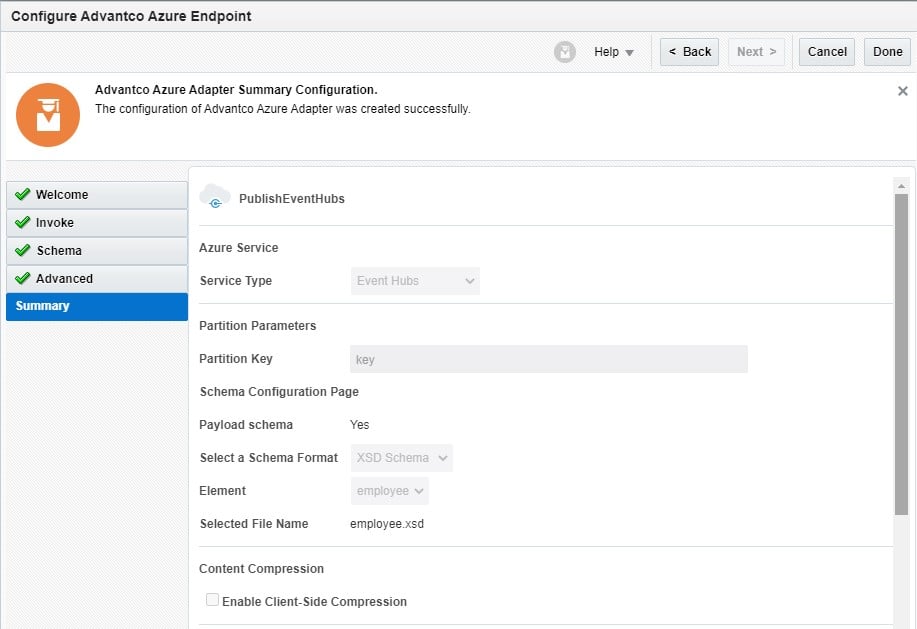
We also need to convert the XML structure to a JSON structure as an additional requirement for our use case. This is also an optional step.
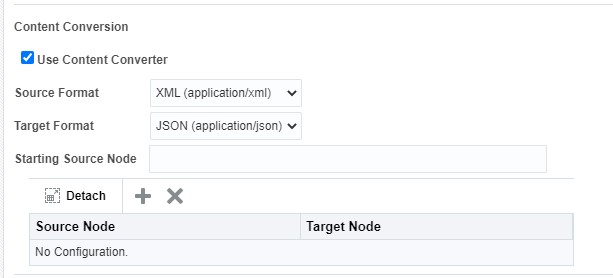
Finally, we need to add additional steps to convert the event payload in the proper structure so we can map it to the Azure structure.
The final result of the integration looks as below.
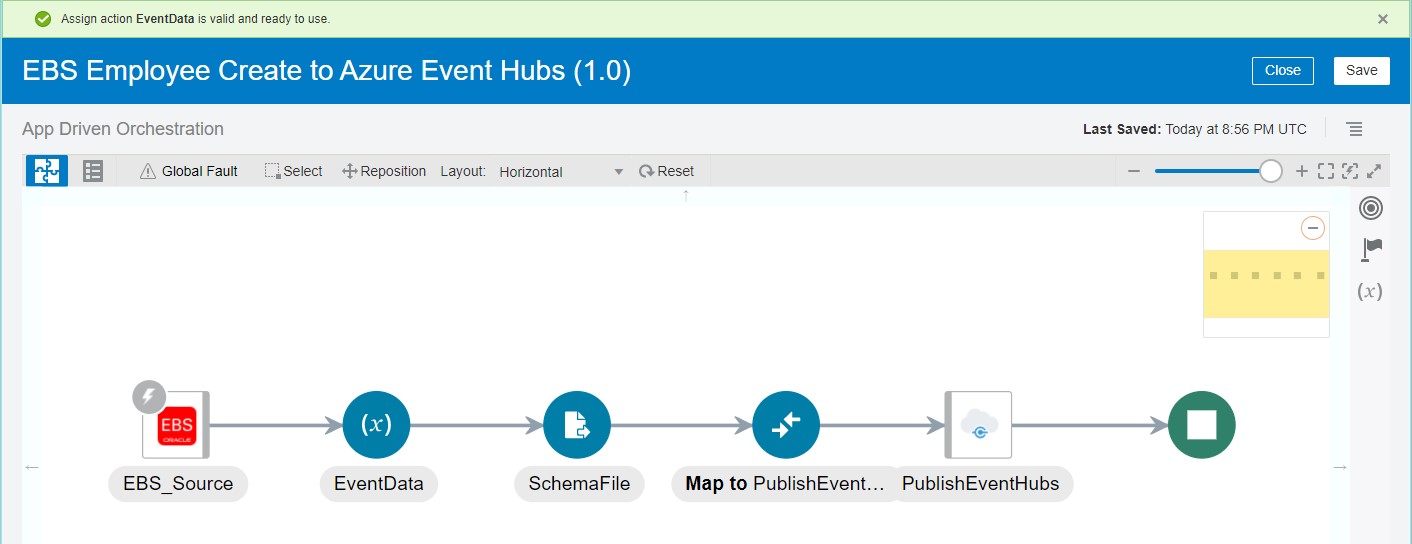
Running the integration flow
In Oracle E-Business Suite, we create a new employee. On saving the new record, an event will be sent to OIC.
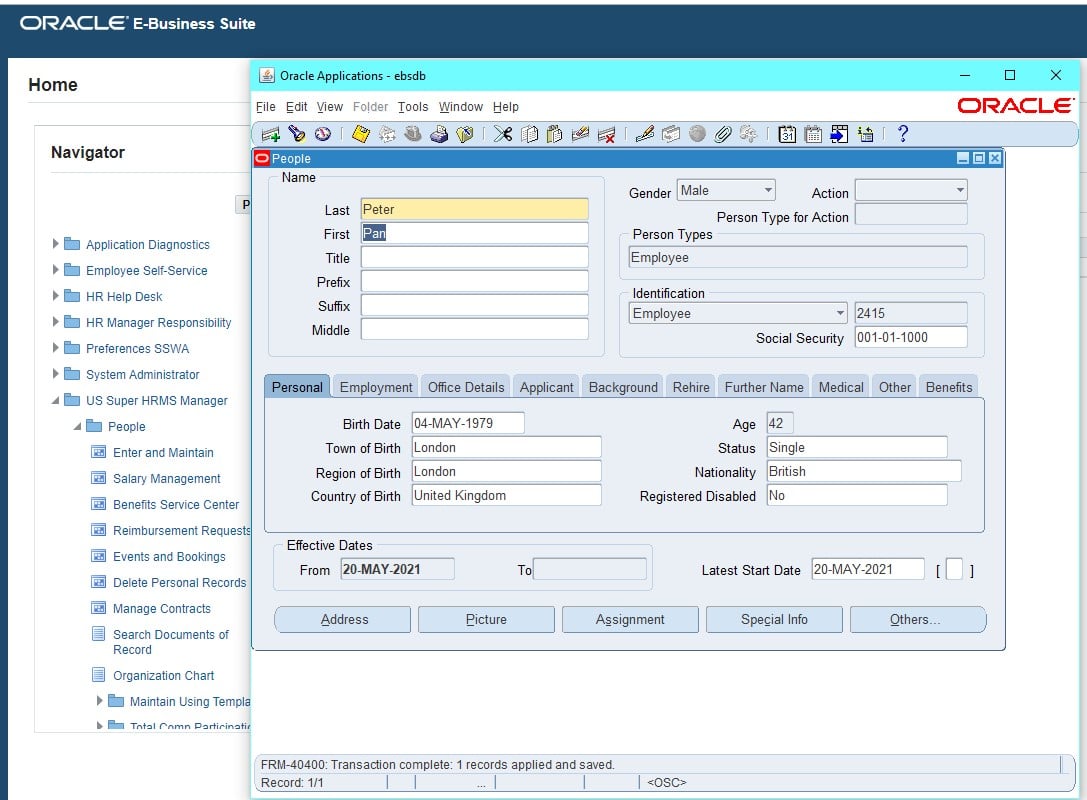
We can monitor the process in the Monitoring section in the OIC tenant.
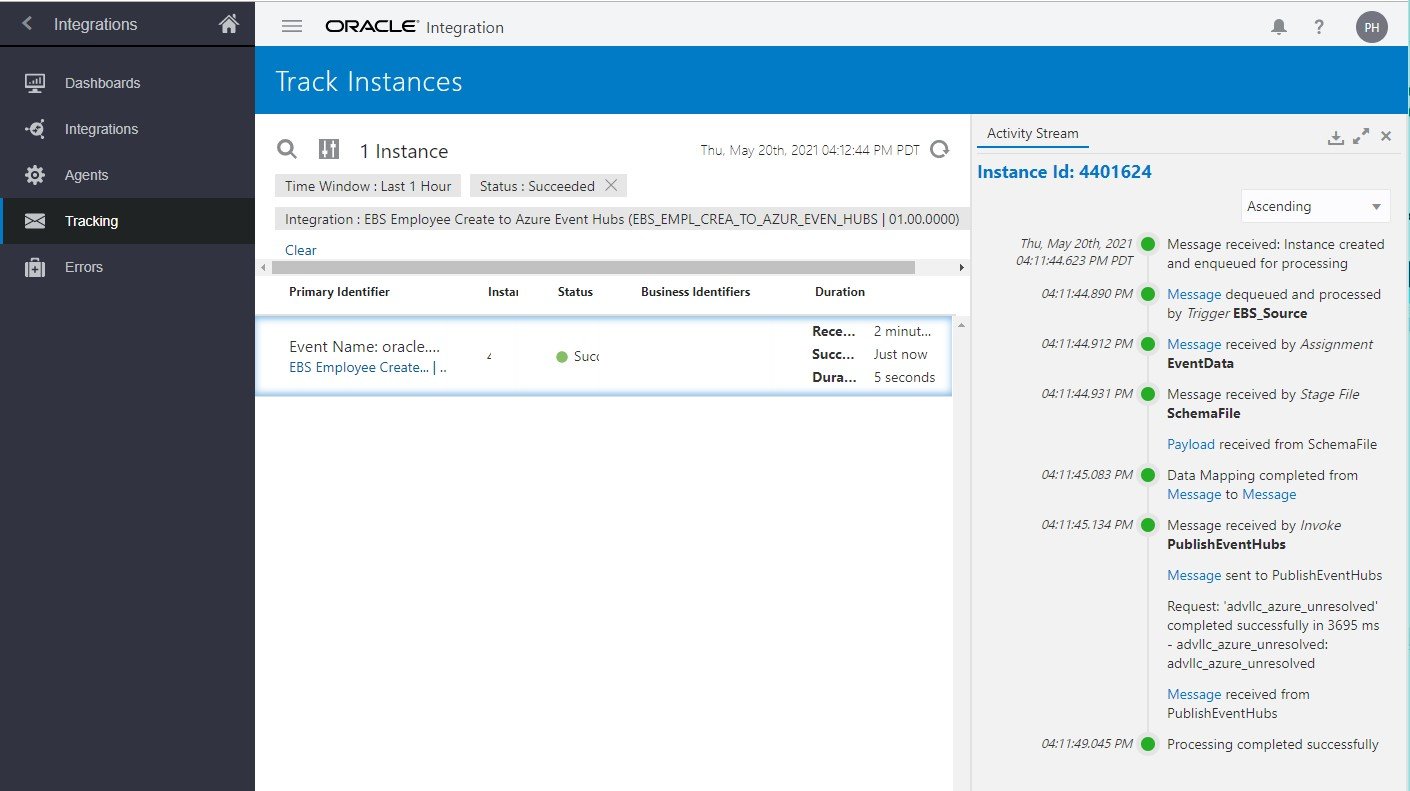
Resources
https://docs.oracle.com/en/cloud/paas/integration-cloud/e-business-adapter/toc.htm
https://advantco.com/products/oracle-cloud-adapters
Please reach out to our sales team at sales@advantco.com if you have any questions.
.png?width=900&height=186&name=Advantco%20logo%20AAC%20V1%20Ai%20file%201%20(1).png)
.png)
.png)




